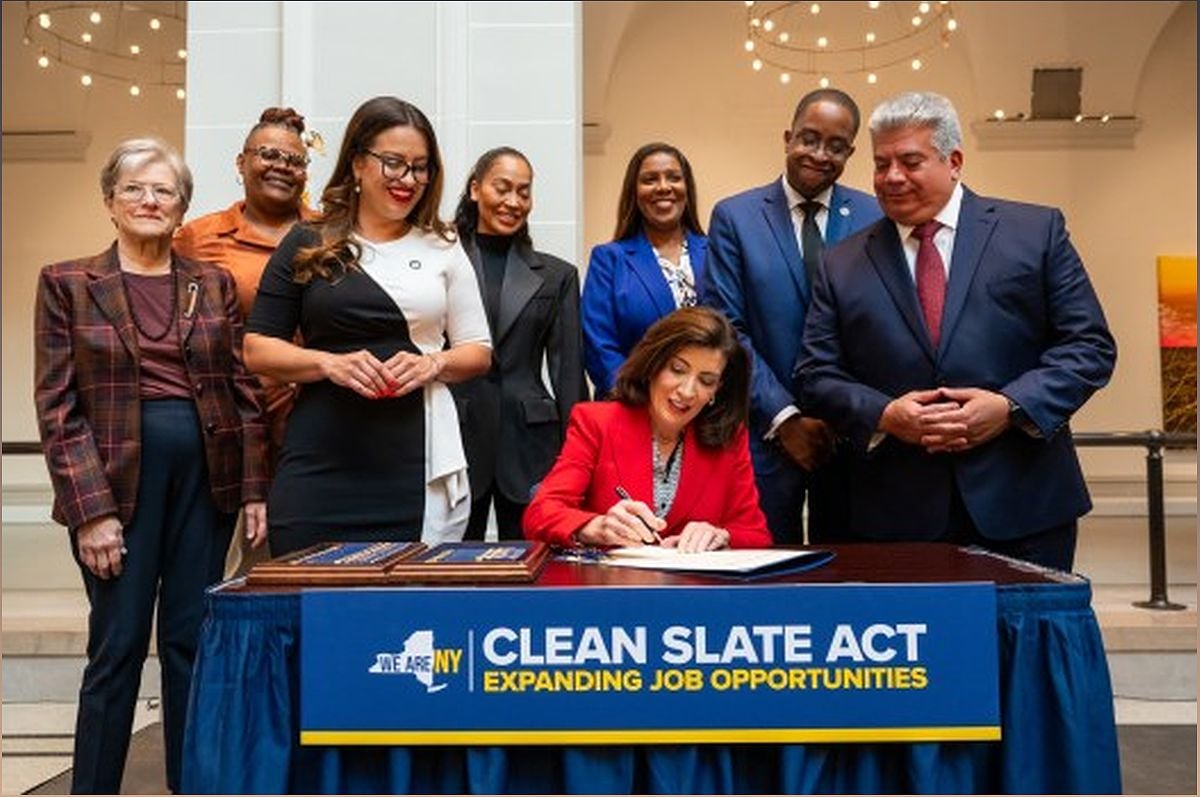The Clean Slate Act: A New Path to Redemption and Reintegration
Almost all prison sentences have end dates, as does parole, but despite doing their time for their crime, people’s past mistakes continue to follow them. However, a new law in New York State is aiming to change that. The Clean Slate Act, signed into law by Governor Hochul, will automatically seal certain non-violent criminal records, providing individuals with a fresh start and the opportunity to fully reintegrate into society. In this article, we will explore the details of this groundbreaking legislation and its potential impact on the lives of former offenders and the community as a whole.
The Limitations of the Current Sealing Law
Exploring the challenges and complexities of the existing sealing law in New York State
The current sealing law in New York State, implemented in 2017, aimed to provide individuals with non-violent criminal records the opportunity to have their past convictions sealed. However, the process to achieve this is burdensome and complex, requiring multiple steps and a significant amount of time and effort.
According to studies, only a minuscule percentage of individuals with criminal records have successfully completed the sealing process, estimated at just 0.2%. This highlights the need for a more accessible and streamlined approach to help individuals move on from their past mistakes.

Introducing the Clean Slate Act
Understanding the key provisions and goals of the Clean Slate Act in New York State
The Clean Slate Act, signed into law by Governor Hochul, is set to revolutionize the process of sealing non-violent criminal records in New York State. This new legislation aims to automatically seal certain convictions, providing individuals with a clean slate and the opportunity to rebuild their lives.
Under the Clean Slate Act, misdemeanor convictions will be sealed from view after three years, while felony convictions will be closed after eight years. It’s important to note that violent offenses and sex crimes are not included in this act, ensuring public safety and allowing law enforcement access to relevant criminal records.
Benefits for Individuals and Society
Exploring the positive impact of the Clean Slate Act on individuals and the community
The Clean Slate Act offers numerous benefits for individuals with criminal records as well as society as a whole. By automatically sealing certain convictions, this legislation removes the burden of past mistakes when individuals are seeking housing, employment, and other opportunities.
Moreover, the Clean Slate Act promotes the successful reintegration of ex-offenders into society, reducing recidivism rates and creating safer communities. It recognizes that individuals who have paid their debt to society deserve a chance to start anew and contribute positively.
Comparison to Other States and Future Considerations
Examining how the Clean Slate Act aligns with similar legislation in other states and potential future adjustments
New York State is not alone in implementing a Clean Slate Act. Other states have also recognized the importance of providing individuals with criminal records a fresh start. By joining this movement, New York aims to create a more equitable and just system.
As the Clean Slate Act takes effect in one year, it will be crucial to monitor its impact and make any necessary adjustments. Similar to Albany’s bail reform law, which has undergone tweaks over the years, the Clean Slate Act may require fine-tuning to ensure its effectiveness in helping individuals rebuild their lives while maintaining public safety.
